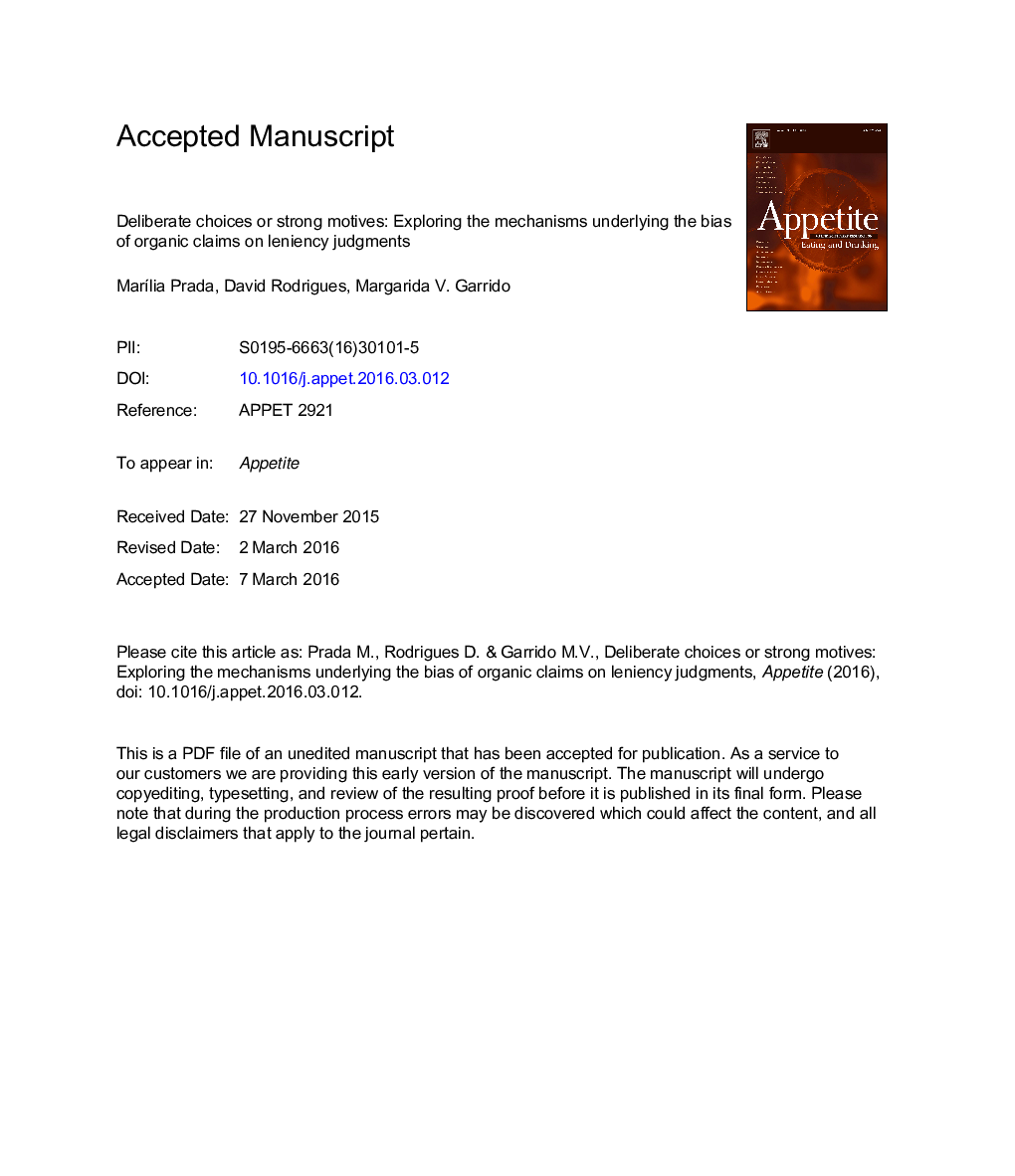| Article ID | Journal | Published Year | Pages | File Type |
|---|---|---|---|---|
| 7307076 | Appetite | 2016 | 39 Pages |
Abstract
Organic claims can influence how a product is perceived in dimensions that are unrelated with the food production method (e.g., organic food is perceived as more healthful and less caloric than conventional food). Such claims can also bias how the consumers of organic food are perceived and how other people judge their behavior. Schuldt and Schwarz (2010) have shown that individuals evaluating a target with a weight-loss goal are more lenient in judging the target forgoing exercise when the target had an organic (vs. conventional) dessert. This impact of organic claims on leniency judgments has been interpreted either as a halo or a licensing effect. In the current research we aim to replicate and extend Schuldt and Schwarz's (2010) results by examining the mechanisms that are more likely to explain the observed leniency judgments. In Experiment 1, we observed that leniency towards a target that has consumed an organic meal is only observed when the target intentionally chooses such organic meal (vs. choice determined by the situation). These findings suggest that the impact of organic claims on leniency judgments is not merely based on a halo effect. Instead, a licensing account emerges as the most probable mechanism. In Experiment 2, we further found that stronger (vs. weaker) motives for forgoing exercise influenced leniency judgments to the same extent as having had an organic meal. Understanding the mechanisms that shape consumers' decisions may have important implications to prevent bias in their judgments about food and exercise.
Keywords
Related Topics
Life Sciences
Agricultural and Biological Sciences
Food Science
Authors
MarÃlia Prada, David Rodrigues, Margarida V. Garrido,
